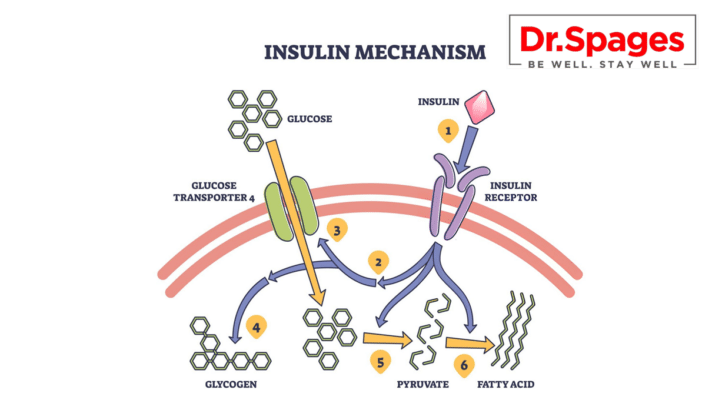
Is Gluten Good For Type II Diabetics?
Is Gluten Good for Type 2 Diabetics?
Gluten is a hot topic when it comes to managing type 2 diabetes. While it’s commonly found in many of our favorite foods, the question remains: is gluten helping or harming your health as a diabetic?
I’m Dr. Jonathan Spages, and in this article, we’ll uncover the truth about gluten, its effects on your body, and why it may be critical for type 2 diabetics to avoid it. Let’s dive in.
What Is Gluten?
Gluten is a protein found in wheat, barley, and rye. It gives bread and other baked goods their elasticity and chewy texture. Over the years, gluten has become a staple in many processed foods, but the wheat we consume today is not the same as the wheat of centuries past.
Modern wheat has been genetically modified to increase the gluten content. Why?
- Increased Yield: Modified wheat is cheaper to produce.
- Insect Resistance: Insects tend to avoid higher-gluten wheat.
- Lower Costs: Gluten-heavy wheat allows manufacturers to produce foods like cookies, cakes, and pastries at a lower price.
However, this modification comes with a significant downside: the human body often struggles to digest this altered gluten.
Why Gluten Matters for Type 2 Diabetics
Many people, including those with type 2 diabetes, are sensitive or even allergic to gluten. Here’s why avoiding gluten might be essential for managing your condition:
1. Triggers Inflammation
Gluten can irritate the gut lining, leading to chronic inflammation. Inflammation is a major contributor to insulin resistance, which worsens blood sugar control.
2. Impaired Gut Health
For some, gluten damages the intestinal lining, causing “leaky gut.” This condition allows toxins and undigested food particles to enter the bloodstream, triggering an immune response that can exacerbate diabetes symptoms.
3. Increased Insulin Resistance
Chronic inflammation and poor gut health caused by gluten can lead to insulin resistance, making it harder for your body to regulate blood sugar.
4. Hidden Sources of Gluten
Gluten is often hidden in processed foods, sauces, and snacks, making it challenging to avoid. However, vigilance in avoiding these products can lead to noticeable health improvements.
Real-Life Lessons: The Gluten Challenge
Over the years, I’ve worked with many patients skeptical about the impact of gluten on their health. Here’s what I’ve learned:
- Antibody Testing: Advanced testing reveals that many type 2 diabetics have significant sensitivities to gluten, even if they show no immediate symptoms.
- Patient Stories: Patients who eliminate gluten often report reduced inflammation, better energy levels, and improved blood sugar control.
The Cost of Gluten-Indulgence
When type 2 diabetics consume gluten, the effects often go unnoticed until it’s too late. Symptoms can range from fatigue and joint pain to severe inflammation, making it harder to manage blood sugar levels.
Imagine enjoying a delicious piece of cake at a family gathering only to feel sluggish, inflamed, and regretful hours later. It’s a cycle that many patients recognize but struggle to break.
How to Avoid Gluten
If you’re considering removing gluten from your diet, here are a few tips:
- Read Labels: Look for “gluten-free” options and avoid foods containing wheat, barley, or rye.
- Cook at Home: Preparing meals at home allows you to control ingredients and avoid hidden sources of gluten.
- Choose Whole Foods: Focus on fresh fruits, vegetables, lean proteins, and naturally gluten-free grains like quinoa and rice.
Conclusion
For type 2 diabetics, gluten is more than just a dietary consideration—it’s a potential barrier to reversing your condition. By eliminating gluten, you can reduce inflammation, improve gut health, and enhance insulin sensitivity.
If you’re struggling to manage your diabetes or want to explore a root-cause approach, I invite you to learn more about how personalized care can transform your health.
Watch My Free Diabetes Training Webinar: https://drjspages.com/webinar
Take the first step toward a healthier, gluten-free lifestyle today and see the difference it can make in your journey to reverse diabetes.






I watch the gluten in my diet, it does make a difference!
Yes. Dr Spages has been gluten free for over 20 years. He has noticed great changes too.